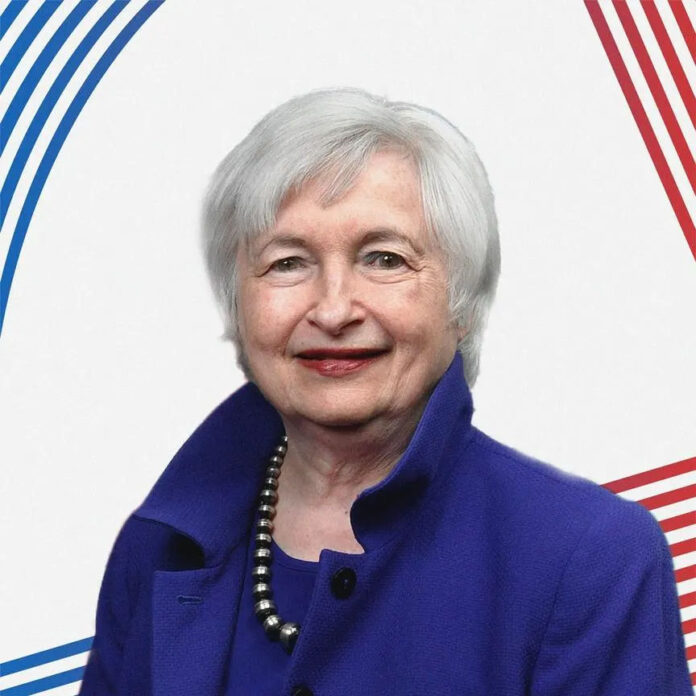washington, Apr 5
US Treasury Secretary Janet Yellen called Friday for a level playing field for American companies and workers as she began a five-day visit to China in one of the country’s major industrial and export hubs.
Yellen told Wang Weizhong, the governor of Guangdong province, that it’s important for the US and China to have open and direct communication on areas of disagreement. “This includes the issue of China’s industrial overcapacity, which the United States and other countries are concerned can cause global spillovers,” she said.
Yellen, the first Cabinet-level official to visit China since President Joe Biden met Chinese leader Xi Jinping last November, has telegraphed that she will raise what the US considers to be unfair Chinese trade practices, a concern shared by many European countries. Before talks with the governor, she met with American, European and Japanese business representatives to hear their concerns, ahead of what will likely be tough talks on trade and other issues with senior Chinese government officials.On Friday, Yellen also plans to speak with American business leaders and take questions from them in the auditorium of a marbled convention center in the Baiyun District of Guangzhou.
“I’ve heard from many American business executives that operating in China can be challenging,” Yellen says in prepared remarks to be delivered at an event hosted by the American Chamber of Commerce in China on Friday afternoon.
Citing a recent survey by the Chamber that found that a third of American firms in China say they have experienced unfair treatment compared to local competitors, Yellen says the US has seen China “pursue unfair economic practices, including imposing barriers to access for foreign firms and taking coercive actions against American companies.” “I strongly believe that this doesn’t only hurt these American firms: ending these unfair practices would benefit China by improving the business climate here. I intend to raise these issues in meetings this week,” she says in her speech.Guangzhou is the capital of Guangdong province, a Chinese manufacturing and export hub that is home to telecom giant Huawei and BYD, China’s largest EV maker. Huawei has been hit hard by US restrictions on semiconductor exports to China and is at the vanguard of Chinese efforts to become self-sufficient and a leader in technology. Yellen will head to Beijing next. Eswar Prasad, a trade professor at Cornell University, expects Yellen to push Beijing to bolster domestic consumption and ensure fair competition in new technology sectors, especially green energy and electric vehicles, along with adequate market access for U.S. companies.
“Concerns about China attempting to export its overcapacity and simultaneously making a big push into these sectors will be top of mind for the US delegation,” he said. China has pushed back against the overcapacity concerns expressed by both the U.S. and Europe. Foreign Ministry spokesperson Wang Wenbin said earlier this week that the growth in Chinese EV and solar exports is conducive to green development globally and the result of the international division of labor and market demand. He accused the U.S. of interfering with free trade by restricting technology exports to China.“As for who is doing non-market manipulation, the fact is for everyone to see,” he said. “The U.S. has not stopped taking measures to contain China’s trade and technology. This is not de-risking,’ rather, it is creating risks.” Scott Paul, president of the Alliance for American Manufacturing — an alliance of businesses and the US Steelworkers union — told The Associated Press ahead of Yellen’s trip that “there is a limited amount of expectations we should have about the Chinese government and how it responds; one thing that Yellen hopefully can and should say is that the US is prepared to use all the tools that we have available through policy to ensure that China’s industrial overcapacity doesn’t negatively harm our economic and national security interests.”



























